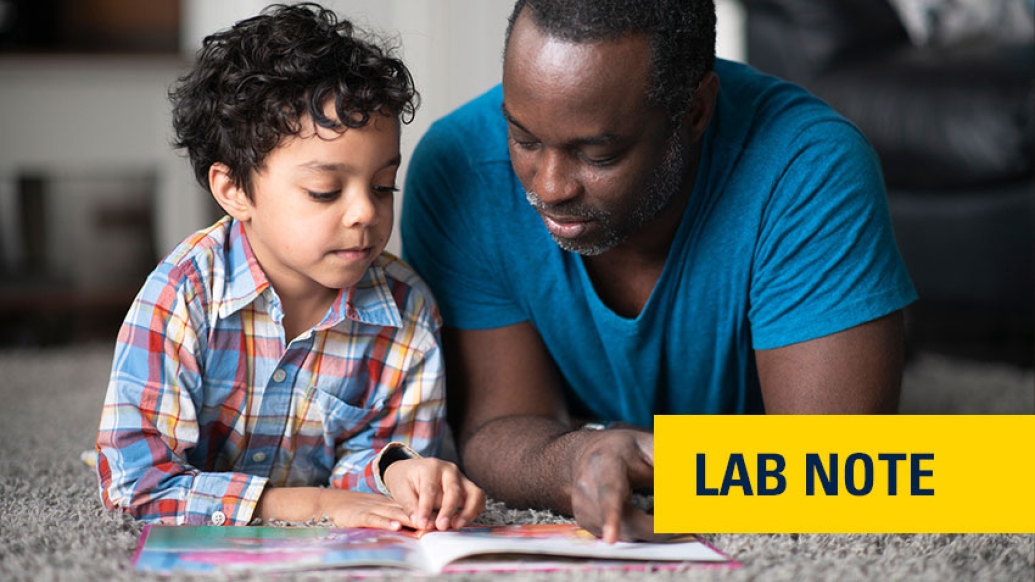Study finds higher quality interactions between parents and young children while reading traditional books over digital apps.
12:20 PM
Author |

When it comes to reading to young children, huddling together over a good old-fashioned book is still better than story time on a tablet, new research suggests.
Researchers examined interactions between 72 parents with their toddlers ages 24-36 months and compared interactions while reading tablet apps versus traditional children's books.
Parents talked more to their children – with children in turn responding to them more –while reading the print version, according to the study in Pediatrics. Children more prone to emotional outbursts also responded to their parents better when reading from a book.
MORE FROM THE LAB: Subscribe to our weekly newsletter
"Parent-child interactions through shared reading promote language development and literacy and may also benefit friendships, school success and other child development outcomes later in life," said lead author Tiffany Munzer, M.D., a behavioral developmental pediatrician at University of Michigan Health C.S. Mott Children's Hospital.
The new study supports Munzer's earlier findings indicating that when parents and children read print books, they talk more frequently, and the quality of their interactions are better than when they read electronic books.
Ninety-eight percent of families of children under age nine own a cell phone or tablet, and toddlers spend on average over two hours per day using digital media.
"Tablets and mobile devices are prominent fixtures in modern family life, but they aren't as educational or valuable to children's development as traditional books," Munzer said.
She said software designers creating e-reading material for children should seek input from trained early childhood specialists to cater the delivery of content for children and eliminate distractions like animations and ads.
Children's health providers should also help guide parents on media use.
"Pediatricians should continue to recommend that parents co-view digital media with their children when possible, ask open-ended questions and talk during reading time to help their children engage and learn," Munzer said.
Like Podcasts? Add the Michigan Medicine News Break on iTunes or anywhere you listen to podcasts.
Additional authors include Jenny Radesky, M.D., Alison L. Miller, Ph.D., Samantha Yeo, B.A., Yujie Wang, M.S., Harlan McCaffery, M.S., and Niko Kaciroti, Ph.D., all of University of Michigan.
Study Cited: "Parent verbalizations and toddler responses with touchscreen tablet nursery rhyme apps," Pediatrics, DOI: 10.1542/peds.2021-049964

Explore a variety of health care news & stories by visiting the Health Lab home page for more articles.

Department of Communication at Michigan Medicine
Want top health & research news weekly? Sign up for Health Lab’s newsletters today!





